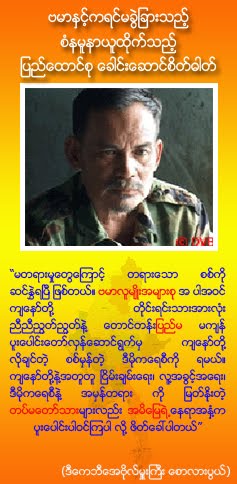Ron Paul has committed himself for over 30 years to educating Americans in libertarian economic principles, such as eliminating the Federal Reserve Board, a private-public banking entity that Paul says has a centralized monopoly control over our money and threatens to impoverish the population through devaluation of the dollar.
Paul has many times confronted Congress with a bill to audit the Federal Reserve Board, which Congress has repeatedly turned down.
The Federal Reserve System (also known as the Federal Reserve, and informally as the Fed) is the central banking system of the United States. It was created in 1913 by the enactment of the Federal Reserve Act, largely as a response to a series of financial panics or bank runs, particularly a severe panic in 1907. Over time, the roles and responsibilities of the Federal Reserve System have expanded and its structure has evolved. Events such as the Great Depression were some of the major factors leading to changes in the system. Its duties today, according to official Federal Reserve documentation, fall into four general areas: 1. Conducting the nation's monetary policy by influencing monetary and credit conditions in the economy in pursuit of maximum employment, stable prices, and moderate long-term interest rates
2. Supervising and regulating banking institutions to ensure the safety and soundness of the nation's banking and financial system, and protect the credit rights of consumers
3. Maintaining stability of the financial system and containing systemic risk that may arise in financial markets
4. Providing financial services to depository institutions, the U.S. government, and foreign official institutions, including playing a major role in operating the nation's payments system
Federal Reserve System is subject to the Administrative Procedure Act. According to the board of governors: "It is not 'owned' by anyone and is 'not a private, profit-making institution'. Instead, it is an independent entity within the government, having both public purposes and private aspects." In particular, neither the Federal Reserve System nor its component banks are owned by the US Federal Government.
According to the Federal Reserve, there are presently five different parts of the Federal Reserve System: 1. The presidentially appointed Board of Governors of the Federal Reserve System, a governmental agency in Washington, D.C.
2. The Federal Open Market Committee (FOMC), which oversees Open Market Operations, the principal tool of national monetary policy.
3. Twelve regional privately-owned Federal Reserve Banks located in major cities throughout the nation, which divide the nation into 12 districts, acting as fiscal agents for the U.S. Treasury, each with its own nine-member board of directors.
4. Numerous other private U.S. member banks, which subscribe to required amounts of non-transferable stock in their regional Federal Reserve Banks.
5. Various advisory councils.
The structure of the central banking system in the United States is unique compared to others' in the world, in that an entity outside of the central bank creates the currency. This other entity is the United States Department of the Treasury.
★ ★ ★ ★ ★
ငါတုိ႔ျမန္မာ့ေျမတြင္ မြတ္ဆလင္ေတြလုိ အေဖက သမီး၊ သားက အေမ၊ အစ္ကိုက ညီမ၊ တူက အေဒၚ၊ ေျမးက အဖြားကုိ မုဒိမ္းက်င့္တဲ့ အျဖစ္မ်ဳိးလုံး၀မရွိ။ တရုတ္လုိလည္း ကေလးအရင္းကုိ မိန္းခေလးျဖစ္လုိ႔ ေမြးခန္းထဲမွာ သတ္ျဖတ္ျခင္းမ်ဳိးငါတုိ႔မွာ မရွိ။ အေနာက္ဖက္လုိလည္း ကာကြယ္ေဆးမွာ အဆိပ္ခတ္တာမ်ဳိးလည္းမရွိ။ နအဖႏွင့္ ဒီမုိသမားေတြအခ်င္းခ်င္း ေစာက္တင္းေျပာတာေတြ ၾကားဖန္မ်ားလုိ႔ ၊ မၾကီးမငယ္ရန္ျဖစ္တာေတြ ျမင္ဖန္မ်ားလုိ႔သာ ျမန္မာျဖစ္ရတာကုိ ဂုဏ္ငယ္ေနျခင္းျဖစ္၏ ☼ ႏွစ္သစ္မွာ ျမန္မာျဖစ္ရတာဂုဏ္ယူတတ္ပါေစ။ ☼ အမ်ဳိးဘာသာ သာသနာအတြက္ ဂုဏ္ယူတတ္ပါေစ။☼ ယုတ္ညံ့သည့္မြတ္ဆလင္၀ါဒ အျမစ္ျဖဳတ္ေရးမွာ အုတ္တစ္ခ်ပ္သဲတစ္ပြင့္ျဖစ္လာပါေစ။









No comments:
Post a Comment